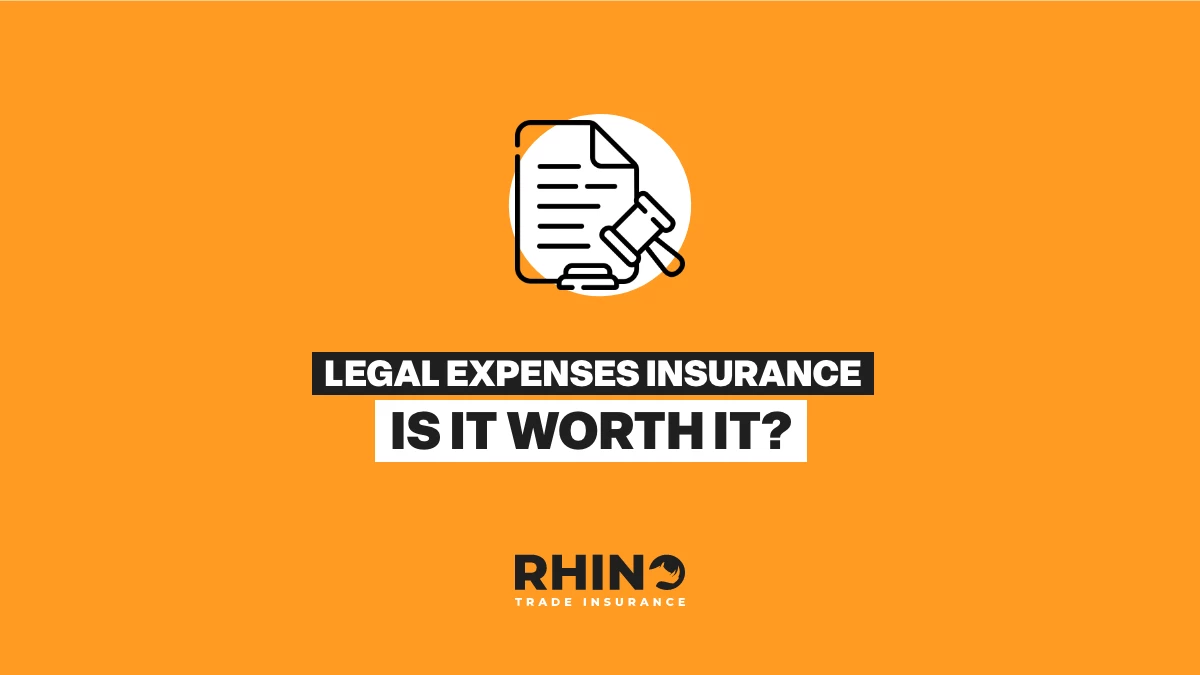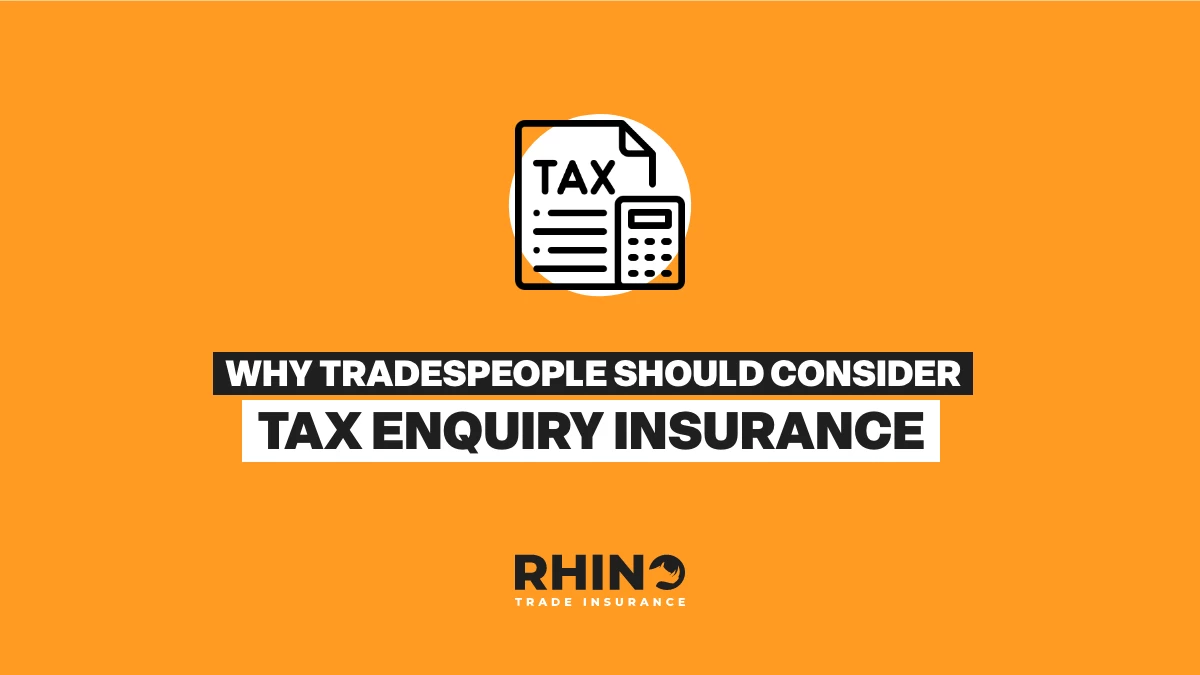
Legal Expenses Insurance – Is it Worth It?
Legal Expenses Insurance for tradespeople explained—what it covers, when you might need it, and how it protects against costly legal fees.
When you’re making a living as a self-employed tradesperson, you’ll need to know your way around a contract. Since they’re legally binding documents, you need to follow a contract to the letter, so a good understanding of its contents is essential. Public liability insurance is almost always written into trade contracts as a requirement, and for good reason.
Let’s take a closer look at trade contracts and why public liability insurance is such a crucial part of them.
Now, you may not want to sign a contract for every single job. For small and straightforward jobs, such as fixing a leaky tap or pressure-washing a drive (or whatever the equivalent is in your trade!), your customer will probably be comfortable with an agreement made verbally or over email or text message. But for larger or more bespoke jobs, for instance building an extension, you’re both going to want a contract in place.
It’s important to know that if you want to do any work for a company or local authority in the UK (rather than a private customer), you’ll always need to sign a contract.
Don’t be afraid of contracts – they’re good news for both the tradesperson and the customer. They set out the particulars of the job, which should leave no room for doubt or argument after the job has begun. So long as both sides stick to the terms of the contract, all should be well. And if any issues arise, then it’s much easier to determine who didn’t deliver as promised by using the contract as a framework.
Trade contracts are varied, and generally depend on who the customer is. Generally, you can expect to find the following in a trade contract:
Public liability insurance is not a legal requirement in the UK. However, the importance of public liability insurance for tradesmen is so widely recognised that most tradespeople have it as standard. Another reason for this is that tradespeople can’t book quality jobs without public liability insurance, so it’s in their best interests, too. That being said, there will always be those rogue tradesfolk to decide to forego insurance to save a few pennies.
Usually under the ‘Limitation of Liability’ section of a contract, you will find the public liability insurance requirements you’ll need to have in place before being hired for the job. It will also specify the amount required, which can be from £1million up to £10million, depending on the size and scope of the project and the level of risk involved.
Public liability insurance is one of the key contractual requirements for tradesmen because it protects the finances of both the tradesperson, and the customer should something go wrong. Companies and local authorities are highly risk-averse and understand the problems that can come with hiring a tradesperson who does not hold public liability insurance, so they require it without exception.
Another form of insurance that sometimes comes as a contractual requirement for tradespeople is Professional Indemnity Insurance. This insurance protects against negligence claims that arise from designs, plans, professional expertise, or advice that goes awry. Professional Indemnity insurance isn’t always required, as not every trade job has an advice element.
Trades work is known to be hazardous, with a higher level of risk than your average 9-5. This is why public liability insurance is so important. But what does it actually do?
Public liability insurance protects a tradesperson against the cost of third-party claims in cases where someone has become injured, or their property has become damaged, as a result of the tradesperson carrying out their work.
Public liability insurance covers injury and/ or property damage to customers or members of the public. This could be something small, like a dropped tin of paint which breaks a customer’s kitchen tile, or an injury incurred when a passerby trips over an item belonging to the tradesperson. It could also be something more serious, including death.
So, we have established that your clients will demand you have public liability insurance as a contractual requirement for many trade jobs, particularly for larger projects and more lucrative work. But what’s in it for you?
A financial safety net
If something happened to a customer or member of the public on your job site, they will almost certainly bring a legal claim against your business. You’ll be found liable, and any costs associated with the accident or damage will be yours to bear. These costs could include legal representation, medical expenses for the injured party, repair or replacement of damaged property and compensation.
Obviously, no tradesperson wants to come up with the cost of covering third-party accidents and damage. Even smaller claims can run into the thousands, and more significant injuries or damage can easily run into the hundreds of thousands of pounds.
With public liability insurance in place, your insurer will cover the costs of claims brought against you, meaning you don’t have to worry about every slip, trip and fall bankrupting your business.
Enhanced professional reputation
As we mentioned, public liability insurance is not a legal requirement. But having it will send a clear message to your potential customers that you take your liability seriously and you are able to make things right financially should your business activities cause harm.
As such, having public liability insurance will secure your business’s credibility and reputation.
Do subcontractors need their own Public Liability Insurance?
If you’re working as a subcontractor, you still need public liability insurance of your own as you won’t be covered under the main contractor’s policy. It also helps with establishing your status with HMRC as a bona-fide contractor, rather than an employee in disguise.
Rhino are the trade insurance experts. We’ve been in the industry for years and have picked up multiple awards for our no-fuss, low-cost trade insurance and our outstanding customer service.
Our UK-based team are on hand six days a week to answer any question you may have. Give us a call on 0116 350 1549, drop us an email at info@rhinotradeinsurance.com, use our instant chat function or try out our handy quote generator.
Legal Expenses Insurance for tradespeople explained—what it covers, when you might need it, and how it protects against costly legal fees.
Worried about a tax investigation? With HMRC cracking down in 2025, Tax Enquiry Insurance from Rhino gives UK tradespeople expert protection and peace of mind.
Rhino Trade Insurance CEO Troy Stevens joins industry leaders at the House of Commons to discuss the rising issue of tool theft—highlighting its impact on UK tradespeople and the importance of awareness and protection.
Tell us your trade and get a tailored insurance quote for your business in seconds
Our team of experts are available to talk to Mon-Fri 08.30-17.30 and Sat 10.00-14.00

